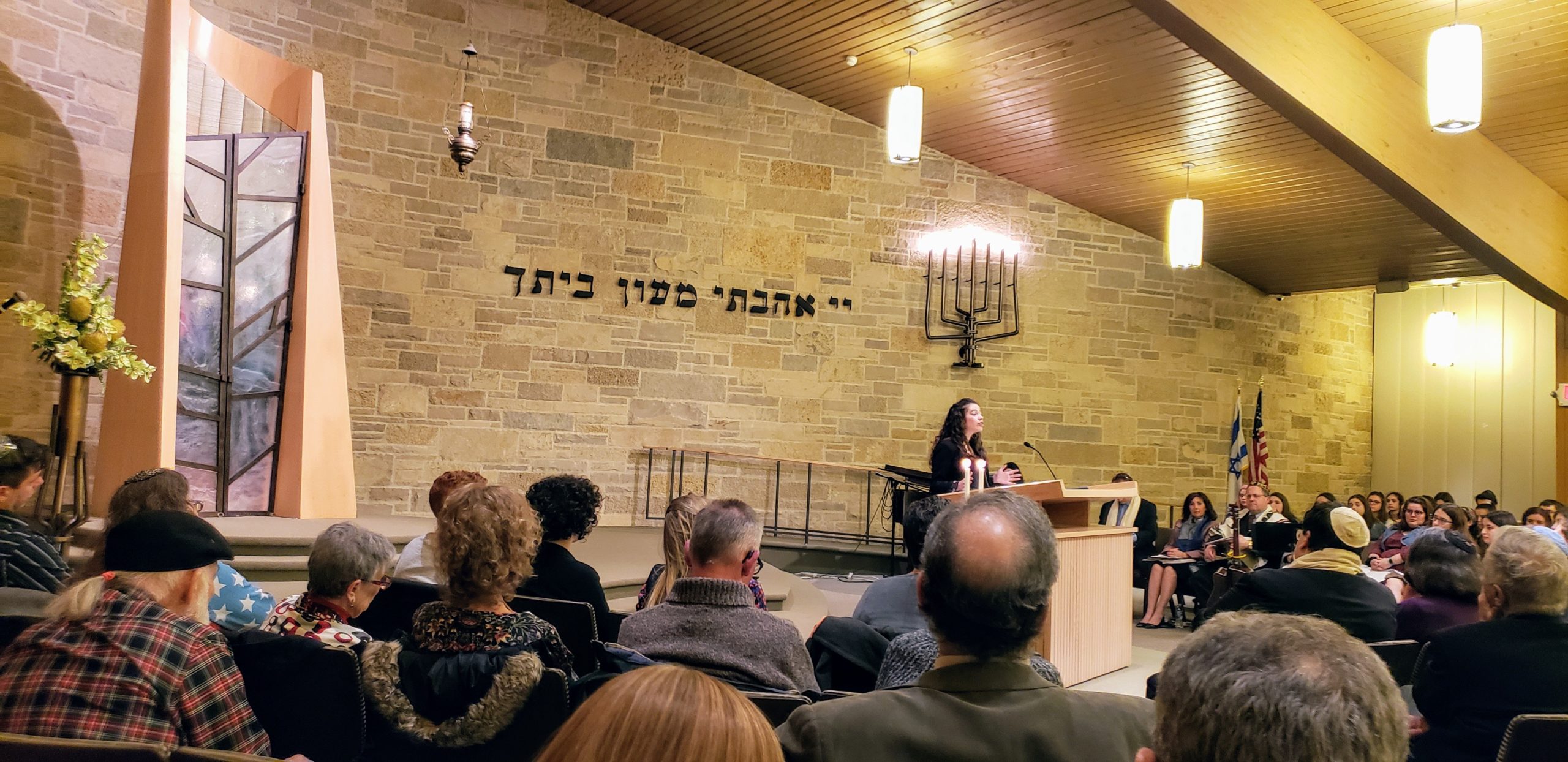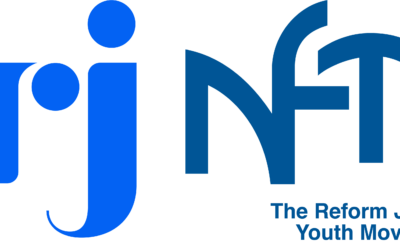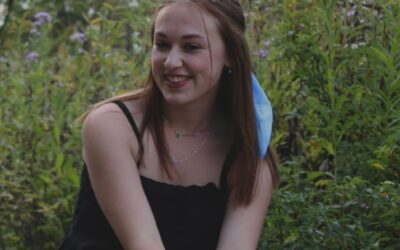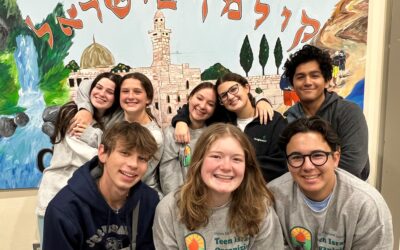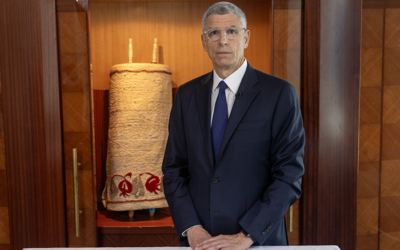By Zoe Terner, NFTY Social Action Vice President
The following article is adapted from Zoe Terner’s remarks at a city-wide Shabbat program for all Milwaukee congregations.
Shabbat Shalom, everybody, and thank you so much for having me here!
Before I begin, I have to give an enormous shout-out to the incredible teens who worked so hard to put this event together. You all are the agents of change that our country so desperately needs, and your determination and passion are changing the world. You’ve really created an incredible, powerful thing.
My name is Zoe Terner, and I’m the North American Social Action Vice President of NFTY: the Reform Jewish Youth Movement. In this position, I represent thousands of Jewish teens across North America, and have the humbling and immense privilege of pursuing justice with them. I’ve served in this role for nearly a year now, and every day has shown me that my peers are talented, they are capable, and they are ready to show up to make our world a better place.
My own social justice journey largely began my freshman year of high school, as a member of NFTY’s Southern Tropical Region. The summer of 2015, as a participant at a Union for Reform Judaism summer camp, I sat in the lobby at camp and watched President Obama give the eulogy at Reverend Clementa Pinckney’s funeral. The Charleston shooting had happened nine days earlier, and Reverend Pinckney was one of nine people murdered during a bible study at church. I watched President Obama sing Amazing Grace on the small camp TV, and I thought, “That could have been us.”
In 2016, I joined the Religious Action Center of Reform Judaism (the RAC) in Washington, DC for the Social Action Leadership Training Program. With about twenty other young Jewish changemakers, I sat in the basement of a dorm at George Washington University and talked about the shooting at Pulse Nightclub in Orlando, Florida. Just two weeks earlier, the then-deadliest shooting in American history had claimed the lives of fifty people. One by one, we read aloud the names and biographies of all fifty victims. It took us over an hour. That night, I remember thinking, “That could have been us”
The afternoon of February 14th, 2018, I turned my phone on after finishing an exam at school, and realized I had hundreds of texts. They were from my NFTY friends, and they said things like, “Do you know if everyone’s okay?” and “Have you heard from everybody?” It took me a moment to understand what they meant: there had been a shooting at a local high school, Marjory Stoneman Douglas, and CNN was saying that there were fatalities.
This time, it was us.
And I’d be remiss if I didn’t mention that today, tragedy struck again. Early this morning, sitting in the airport back home, I watched news coverage of the mass shooting in New Zealand playing on the big screens. Today, another group of people realized that it was them.
It’s the Charleston community, and the Orlando community, and my home town, and New Zealand. It’s us, and them, and you. All of us together are forever affected by gun violence, and all of us together have the mandate to act.
Immediately following the shooting in Parkland, you may have seen stories about buses of students from Stoneman Douglas making their way to Florida’s Capitol to plead with their legislators to make a change. That week, the Parkland Reform Jewish community made me one of their own and invited me to join them on their bus to Tallahassee. I spent eight hours driving from Parkland to the Capitol with a group of my friends who, for a few hours a little over one year ago, I believed might be dead.
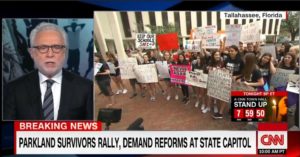 That morning, as our bus rolled up to the Florida Capitol building, we were met with a swarm of photographers and journalists. People with cameras and microphones came running from buildings all around the street to meet us with questions and take our photographs as we stood on the Capitol steps with our posters. Later, my parents sent me a screenshot of a picture or me next to Wolf Blitzer on CNN. My friends were interviewed by BBC, CNN, Telemundo, MSNBC, and I spoke with a reporter from CBS. All day, we were also followed around by an Associated Press crew. The eyes of the nation were on us.
That morning, as our bus rolled up to the Florida Capitol building, we were met with a swarm of photographers and journalists. People with cameras and microphones came running from buildings all around the street to meet us with questions and take our photographs as we stood on the Capitol steps with our posters. Later, my parents sent me a screenshot of a picture or me next to Wolf Blitzer on CNN. My friends were interviewed by BBC, CNN, Telemundo, MSNBC, and I spoke with a reporter from CBS. All day, we were also followed around by an Associated Press crew. The eyes of the nation were on us.
Wearing our Parkland Strong shirts and orange ribbons, we spent hours marching through both the House and the Senate, meeting with legislator after legislator. In many offices we received warm receptions; more than one Senator broke down into tears expressing their sorrows and apologies to us, and nearly everyone we walked by in the hallway paused to let us pass, clapping as we went. We made these people promise that they would not give up. “We have to go home tomorrow,” one of our students told a Senator. “But you get to stay here. You get to keep fighting. Please don’t forget us.”
In other offices we were met with a blatant resistance. One Representative looked these students in the eyes and told them that he voted against hearing the automatic rifle ban bill. When pressed on what he would do to make sure that such a tragedy could never occur again, he told us that he was a new member of the House, and really didn’t have very much power. In our group picture with him, not a single student is smiling.
Worse still, one Representative failed to keep his appointment with us. When we reached his office, trailed by a slew of cameramen, his legislative assistant informed us that the Representative was actually in committee, and wouldn’t be able to meet with us. “We’re just looking for some answers on why the Representative would have voted against hearing the ban on automatic rifles,” our Rabbi asked. The assistant informed us that he wouldn’t speak on behalf of the Representative and refused to comment.
“Fine,” we said. “What room did you say the committee was in?”
Taking our own personal press corps with us, we marched together to the judiciary committee, where we quietly filed in and sat together in the first two rows. As we took our seats, everyone gathered turned to stare, and whispered to each other about “the Parkland kids” crashing their meeting. True to the rigid rules and structure of a committee meeting, the Representatives serving continued their business as though we weren’t there.
At the end of the meeting, once another, totally separate bill had been passed, a Representative was recognized by the chair for a point of personal privilege. “Mr. Chair, I’d like to ask you to recognize the students of Stoneman Douglas High School with us today. I implore you to listen to them.”
In an unprecedented action, flying in the face of decades of Congressional history, the Chairman agreed. Two students from our group spoke before the committee, sharing their stories and calling out by name the Representative who had canceled on us, in front of his colleagues on the committee.
“I’ve served in the House for 12 years now,” one Representative said. “Nothing like this has ever happened before.”
It’s true: nothing like this had ever happened before. Never before had students across the country mobilized like this, never before had the eyes of the nation been so closely trained on us as we fought for change. There was a country-wide call to action roaring loudly in all of our ears, and, in the past year, young Jewish teens have answered the call.
As I sat in that committee, I lived history. I helped to make history.
There are those who would say that calling your Congresspeople doesn’t matter, or that one vote will never make change. In response, I would share the story of a state senator who sat with myself and five other Parkland teens that day, listening to our stories and passionate arguments for gun reform. We pleaded with him to support a comprehensive ban on assault weapons in the state of Florida, and desperately asked for his legislative support. “Listen,” he said. “I don’t believe that banning anything is the solution. They’re just going to change the name and sell them some other way.”
“If I may, Senator?” I asked, interrupting. “There’s a saying in Judaism: ‘You are not obligated to complete the work, but neither are you free to desist from it.’ It’s true that this piece of legislation isn’t a total solution, and it’s true that we have so much work left to do. But, Senator, this is a step. This is a beginning. We are determined to do something, anything, that will save just one life. And then we will keep going, until we have saved them all.”
At the end of our meeting, the Senator told us: “I will be your voice.” Though he disagreed with our proposed course of action, he promised that he would represent us, his constituents, and vote for the ban when it finally came to the Senate.
Though he isn’t Jewish, in starting this immense, exhausting work of making our state a safer place for all its citizens– even when he knew that he alone could not finish it– the Senator adopted the central Jewish value of tikkun olam (repairing the wold). At the root of the way we live our lives as American Jews is a recognition that we, together, have an obligation to work every day, in every way we can, with all of the people that we can to repair the world. Trust me when I say that I know that this is no easy task. Justice is hard, heartbreaking work. We ask ourselves, what does it even mean to repair the world? How can we make life better for the most people? How can we work for tikkun olam even when people fiercely oppose us? I don’t have all of the answers to these questions. What I do know is that, no matter how old or young, we have the obligation to try.
Your burden isn’t to change the whole world by yourself. Your burden is to take the first step, hand in hand with the hundreds of thousands of allies who have your back.
After our dozens of legislative meetings that day, my group joined thousands of other teens and adults at the rally outside of the Capitol. As we walked out to join them, chanting “We are MSD, we’re here to make some history,” the crowd erupted into cheers. It took me a moment to realize that they were for us. Like the Red Sea, the crowd parted, and we walked to the center of the field, surrounded on either side by people applauding.
When the Parkland shooting happened, I’d been saying that I wanted to change the world for a while. I said it after Charleston, after Pulse, after Newton, after Sandy Hook, after San Bernadino, after Las Vegas, after Sutherland Springs, after Aurora. I didn’t know it then, but this is what I meant. The day I lobbied on the Florida Capitol Hill, surrounded by students who were prepared to demand that their legislators kept them safe, was the day that every NFTY event I’ve ever been to had been preparing me for.
On the eight-hour bus ride home from Tallahassee, I wrote a blog post about my experience that would later be published on the URJ website. At the end of this blog, I issued a call to action. On that day, I wrote: “No matter how directly or indirectly you were affected by what happened here in Parkland, you now have the opportunity to join a movement of people committed to creating a better, safer world. Register to vote, walk out of your schools, sign petitions, speak to your legislators. Tell them the story of our Senator, who set aside partisan politics in the interest in representing the voices of his constituents; tell them the story of my friends from Douglas, who didn’t know if February 14th would be their last day; tell them your story, as a Reform Jew who will never stand idly by while your neighbor’s blood is shed. If our leaders don’t change our laws, then we will change our leaders.
We will tell our grandchildren about this one day, NFTY. What will you be able to say?”
Well, a year has passed, and here’s what we’re able to say:
- Across our movement, 500 NFTYites participated in advocacy training, spanning all 50 states, and learned how to speak truth to power;
- 6,000 Reform Jews attended March for our Lives events around the world, and 2,000 people attended the URJ March for Our Lives pre-event in Washington, DC;
- In partnership with the Religious Action Center, we have successfully passed ballot measures in California, Florida, Massachusetts, and Washington;
- Over the course of our civic engagement campaign, literally thousands of Reform Jews worked together, resulting in 100,000+ voter engagements across the Reform Movement.
- Alongside thousands of incredible gun violence prevention advocates around the world, we lobbied the House to pass HR8, the Bipartisan Background Check Bill. It passed this February, marking the first time in decades that a gun violence prevention bill has made it out of the House.
This is our work.
What’s more, these are just the numbers. If you want to be even more inspired, look no further than to the teens sitting here tonight who organized their schools into walkouts and protests, or to the adults sitting next to them who drove them to the rallies, and voted when they couldn’t. Each person in this room who has ever called their representative, who has ever voted, who has ever canvassed for a candidate they believed in, or who has ever supported a teen who they knew could change the world, is part of the movement that has erupted since last February. And if you haven’t yet, know that it’s never too late to start. Today you can take that first step.
My Jewish community has done so much for me. It’s opened my eyes to injustice, it’s taught me how to face those in power with determination and ferocity, and it’s given me a soft place to land when tragedy strikes. I’m a Jewish advocate for a better, more whole world, and, whether you know it or not, you are, too.
Thank you for everything that you’ve done.
